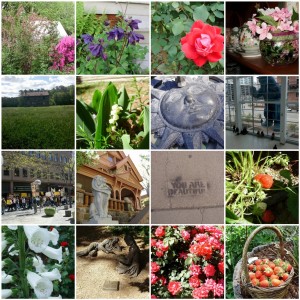There are moments when reading and real life come together. Not to be too dramatic: but now is one of those times. As oil spews into the Gulf of Mexico, my companions for the journey are Annie Dillard and Wendell Berry. And, both of them make the same essential point about science: the real power and terror of science is that neither doesn’t nor can know everything.
For Dillard, the not-knowing can be seen in the natural world, in something as seemingly simple as an elm leaf:
Or again, there are, as I have said, six million leaves on a big elm. All right…but they are toothed, and the teeth themselves are toothed. How many notches and barbs is that to the world. In and out go the intricate leaf edges, and “don’t nobody know why.” All the theories botanists have devised to explain the functions of various leaf shapes tumble under an avalanche of inconsistencies. They simply don’t know, can’t imagine.
Berry’s comments are in response to Edward O. Wilson, who in his book Consilience, celebrates science and discounts the possibilities of learning in and from mystery:
He understands mystery as attributable entirely to human ignorance, and thereby appropriates it for the future of human science; in his formula, the unknown = the-to-be-known…If modern science is a religion, then one of its presiding deities must be Sherlock Holmes. To the modern scientist as to the great detective, every mystery is a problem, and every problem can be solved. A mystery can exist only because of human ignorance, and human ignorance is always redeemable. the appropriate response is not deference or respect, let alone reverence, but pursuit of “the answer”.
Don’t nobody know why…and yet we teach students that there are answers. I am outraged that BP was not required to have a solution to what was clearly a potential problem. I suppose we can blame it on a failure of the imagination but the cynic in me can’t help but blame it on a desire for profit. And an unwavering belief in science to solve any problem. I, of course, am hoping along with everyone else that this IS a problem science can solve, and quickly, but at what cost?
BP, with its string of abuses, clearly has not real concern for the world community other than as a market for its oil. Berry points out that science is often conducted with economics rather than community in mind and quotes Wilson’s description of the “cardinal principle in the conduct of scientific research: Find a paradigm for which you can raise money and attack with every method of anaylsis at your disposal.” Berry goes on:
This principle, in effect, makes the patron the prescriber of the work to be done. It would seem to eliminate the scientist as a person or community member who would judge whether or not the work ought to be done. It removes the scientist from the human and ecological circumstances in which the work will have its effect and which should provide one of the standards by which the work is to be judged; the scientist is thus isolated, by this principle of following patronage, in a career with a budget.
Hmmm…as I typed those last words, I realized how hard I was being on scientists, even if I was only channeling Berry. I’m blaming scientists for the flaws in a system that is much larger than them just as teachers often get blamed for failed reforms for which they had no responsibility. I imagine some scientist, in a planning meeting for the platform, quietly suggesting that this could be a problem. His solution, however, did not meet the cost analysis: what was the chance of this happening and how much would it cost? What the number crunchers failed to consider, however, was the cost if it DID happen! This could ruin BP. I don’t think anyone has the heart to bail them out.

